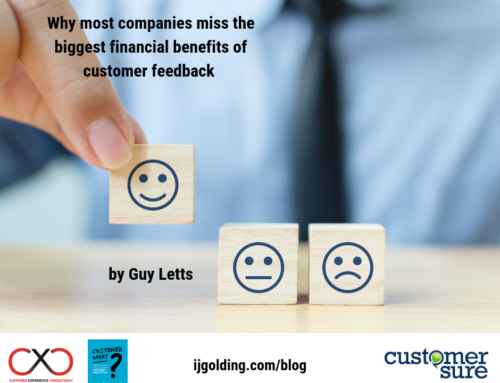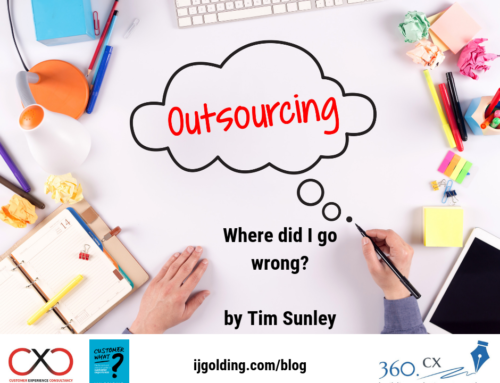This is Helen Kewell. I met Helen and her husband Nick last year whilst attempting to climb too many mountains in too short a space of time. Helen is a very intelligent, witty, attractive mum of three – I am sure she will not mind me saying that she does not look like she has had three kids!! Looking at her picture, all of us can make assumptions about Helen – we can do so with anyone we meet, whether it be in real life, or via a photograph. Why this is important will become clear as you read on.
Last week, like many millions of us around the world, Helen posted a status update on Facebook. Her update was a brief ‘rant’ (as she put it) about an experience she had just had in her local Sainsburys. Helen’s words struck a chord with me – even in the few sentences she posted, I could see that what she had experienced was actually quite significant – to the point where others can learn from it. I therefore asked Helen if she would be interested in writing a ‘guest blog’ for me. You can probably tell that she agreed. I am delighted to give her the opportunity to share the story…….so here goes…….
“In life it is a great and humbling quality to be able to see beyond the facade and not assume anything about the people we interact with. I fight with this on a daily basis in the quest to be a nicer and more accepting person! It strikes me that the companies that excel in customer service are investing in this and getting it right.
Let me give you a personal example of a company that got this wrong today.
I suffer with ME, some days are better than others. My symptoms wax and wane but, crucially to this example, you would rarely guess it from the outside. I look ok, I smile, I do normal stuff. I am lucky enough not to have severe symptoms and I’m as high functioning as I guess they come. However, certain environments and situations can be hard and sometimes there isn’t a warning when a crash is coming.So today after a busy week (and a lack of organisation) I find myself at Sainsburys as I forgot to book the delivery that I’ve come to rely on. No biggy. We’re a family of 5 though so a weekly shop is big and heavy and can be tiring. Factor in the bright lights and low level noise and (ME can cause hypersensitivity to light and sound) and by the time I got to the checkout I needed a sit down and I was aching. I’m not someone that likes to admit defeat and I’m not someone who likes to ask for help so I was very proud of myself for telling the lady on the checkout that I needed help with packing. I still had to load the car, unload the car and put it all away so I knew some help at this point would give me a boost. Reading that last line I realise that sounds crazy as its such a normal thing to do to go and shop for food, but ME can feel on a bad day like very bad flu and even the simplest things seem complicated and hard.
The lady in my checkout told me ‘the person’ who helps with packing was helping someone else and pointed at this one person who could help, who was indeed arm-deep in orange Sainsburys’ bags. She shrugged. She looked a me a little more closely and I knew she was asking herself why I needed help, didn’t see a strong case for needing help and got on with scanning my food. I asked her to please go slowly so I could keep up with the packing. Whilst doing this I looked around and counted 4 other staff in the area not on checkouts. One packing shelves, one with a clipboard and 2 of the ‘headset’ mafia who, according to one of my friends, look more like members of Steps than useful employees…. Anyone of them could have been asked by my checkout lady to help if my case looked stronger I supposed i.e. if I showed outward signs of distress, illness or disability.
I was cross for not saying more so I approached one of the headsets when I’d paid for my groceries and explained what had happened so that she could be aware of it and maybe feed it back in the next team meeting or something. Tired and a little emotional about the experience I had tears in my eyes and was a little embarrassed by this. In return all I got was a weak “sorry” and a slight raise of the eye brows. The worst thing was that I was too exhausted to make any more fuss! While I had been shopping earlier I noticed a Sainsburys employee accompanying a blind woman with a guide dog and seen staff talking to her, addressing her and her dog by name. I’d been impressed by this level of care. In retrospect it makes me more angry at how I was treated.
What can consumer brands learn from this experience? Don’t make assumptions on customer needs based in what you see in front of you. Listen to what they are saying, look for the clues that are not obvious as well as those that aren’t. There are so many disabling conditions that can’t be easily noticed: depression, colour blindness, back problems, arthritis, anxiety, partial hearing to name but a few. Everyone that walks into your store has a story to tell that differentiates them for the next and it runs far beyond what you see on the outside. But fundamentally if a customer asks for help – help them! Don’t allow your staff to make subjective judgements just because it makes their life easier or interrupts their productivity. Productivity is nothing if you destroy trust and goodwill.
Now if I’d been in a competitor store, you know the one with the green and white branding starting with a W…I’m pretty sure the story would have been different. I bear no ill feelings towards the lady on the checkout by the way. She was doing her job and processing my groceries and taking payment. She isn’t necessarily working in an organisation or for a store that has trained, encouraged or rewarded her to think beyond what she sees in front of her, to go a little more for customers and see them as individuals. She hasn’t been taught to look beyond the cover to see or guess at the story inside.
Helen Kewell, February 2013
This brilliantly written and eloquent account of what should have been an insignificant grocery shopping experience hits right at the heart of what consistently delivering a customer experience is all about. Customer experience is about delivering a journey. All journeys have start and end points with lots of bits in the middle. If anything in that journey goes wrong, it can have a material effect on what the customer feels and will remember about the experience.
People are the critical glue that gels the experience together. People are the element of the customer experience that can still make things feel good, even if they go wrong. If your people ‘get it’, your customer should always feel as if someone cares – which may forgive some of the shortcomings elsewhere in the journey. In Helen’s case, it was regrettably the lack of caring from Sainsburys people that proved to be the downfall.
I chaired a customer experience conference in London last week. I was fortunate to have the opportunity to listen to a presentation from Tesco’s Customer Service Director. She spent forty very valuable minutes explaining to the audience all about Tesco’s customer service strategy. The key point of her presentation was that Tesco knew that they had to get better at delivering excellent customer service – I find this a heart warming sentiment from an organisation that makes millions of pounds worth of profit every year. She shared the Tesco core purpose:
“We make what matters better – together”
She also shared Tesco’s Values:
- No one tries harder for customers
- We treat everyone how we like to be treated
- We use our scale for good
From the looks of it, Helen’s experience would not have happened in Tesco – and I agree it would also have been unlikely in Waitrose. Perhaps it would have been unlikely in other Sainsburys stores. I am no sure if Sainsburys have similar values – if not, they could do with getting some!
The purpose of sharing Helen’s story is to enable others to learn from the experience. I would like to think that Sainsburys will also share this story with their store managers and staff. It would have been so simple for the lady on the checkout to call the checkout supervisor – but she made a snap decision that it was not important enough. If a customer asks for help, that is enough.
Thank you Helen for being prepared to be so open and honest in sharing with us. I hope that good will come out of your avoidable experience. You can follow Helen on Twitter @helenkewell
As always, your comments will be very gratefully received.








This is very much in line with an initiative that is going on within Connecting HR at the moment on workplace mental health. Would you mind if I share this blog there, Ian? An excellent piece. From my own experiences at Sainsbury’s, I don’t think it would be much different at other branches. That’s because there isn’t an awareness of ‘invisible’ disabilities. Of course, asking the question ‘Would you like some help with your packing?’ of every customer would get to this particular customer need quite quickly. In my experience, that question gets asked only sporadically, at best. I shop at Asda these days.
Thanks for sharing this Graham – I would be delighted for you to share the blog there. This is why I was keen for Helen to share the story. Sadly it may be representative of others experiences. Saying that, I am sure there are just as many positive experiences – it would be nice to hear those as well.
[…] you that read the blog post featuring the experience of Helen Kewell (https://ijgolding.com/2013/02/11/dont-judge-a-book-by-its-cover-it-does-not-matter-what-you-look-like…) will be extremely interested to know if Sainsburys responded to the blog. You have probably […]
Great piece Ian, always make me raise my eyebrows when you see checkout staff do the “judge” thing at the till. My local Tesco superstore is actually awful at asking if you need assistance with your packing, I don’t have any type of illness but I do have a normally hyper toddler (which sometimes I have to take with me) and at the end of a busy day or weekend, as a busy working Mum that extra offer of help, whilst trying to entertain said toddler is an incredibly powerful customer retention tool, as we know it’s often the simplest things that matter the most.
Rachel, thanks for your comments. I would absolutely agree with you! Before I suffered with ME I still hated supermarket shopping if I had my 3 little people with me. I tend to feel like I constantly need to apologise for myself when out in shops with my children. The checkout is a singularly unique experience when you have children ‘helping’ with packing, pulling the magazines off the rack, trying to break into the food and/or running off! A little compassion and help at that stage and I would be that person’s friend for life.
Read the response from Justin King here – https://ijgolding.com/2013/02/25/dont-judge-a-book-by-its-cover-justin-kings-response/
I am new to your blog Ian, but from what I have read so far will be a frequent visitor, and hopefully a frequent contributor. I think that Helen’s writing conveys her emotions which are key to any customer experience, it is not the fact that they could not recognise Helens physical condition, by her own admission, it would be difficult to tell, but the fact that she has asked for help to pack should have been acted upon…..
I do, however, disagree with the Tesco value “We treat everyone how we want to be treated”, surely in order to fully maximise a customer experience I want to be treated how ‘I’ want to be treated, not how a company percieves that to be. By individualising each experience companies can lock onto the emotions of a customer and start to drive loyalty from there.
Hi Graham – thank you so much for your comments. I could not agree more with you. It is interesting that the online world is adjusting to personalisation at a faster pace than face to face……you would assume that face to face should be easier!!
[…] You can read the post here – https://ijgolding.com/2013/02/11/dont-judge-a-book-by-its-cover-it-does-not-matter-what-you-look-like… […]